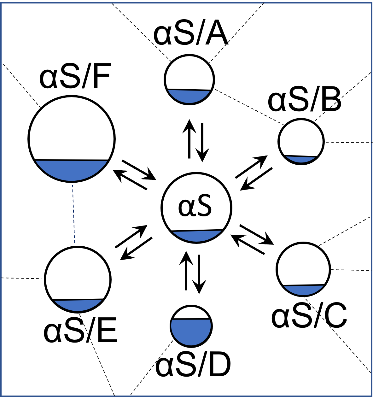Multi-tasking protein: How does nature manage and control multitasking?
Although the protein alpha-synuclein plays an important role in the development of Parkinson's disease its physiological function is still largely unknown. The reason why we know so little about the function of alpha-synuclein is that it probably fulfils multiple tasks in the cell. In this project you will try to shed light on how alpha-synuclein is divided over multiple tasks in in vitro studies. You will make use of ultrasensitive (single molecule) optical detection to quantify the distribution of alpha-synuclein over different partners. We hypothesize that the interaction network stabilizes against the harmful protein aggregation that eventually leads to Parkinson’s disease.

Approach: You will use fluorescently labeled alpha-synuclein and fluorescently labelled interaction partners to monitor interactions. You will reconstitute a protein interaction network in vitro and investigate how sensitive this system is to changes e.g. in the concentration of one of the functional interaction partners. You will start with one interaction partner and subsequently add complexity by building an interaction network where alpha-synuclein distributes over different partners. You will determine binding constants, which can be used to model the interaction network.
The characterization can be done at both the bulk and single molecule level.
If you are interested, please feel free to contact us. Within the Nanobiophysics group we try to provide you with a Bsc/MSc assignment that fits your expertise and interest.
Please contact:
Mireille Claessens: m.m.a.e.claessens@utwente.nl, Zuidhorst 163
Christian Blum: c.blum@utwente.nl, Zuidhorst 168
